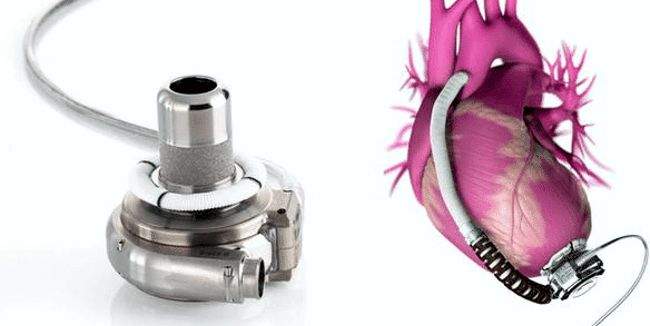Myocarditis is a condition characterized by inflammation of the heart muscle, known as the myocardium. This inflammation can affect the heart’s ability to pump blood efficiently, leading to a range of symptoms that can vary from mild to severe.
Many people diagnosed with myocarditis wonder whether they can return to living a normal life after receiving treatment.
In this article, we will explore the nature of myocarditis, treatments, and the long-term outlook for individuals with the condition.
What Is Myocarditis?
Myocarditis can occur when the heart muscle becomes inflamed due to infections, autoimmune diseases, toxins, or other unknown causes. Viruses are the most common culprit, including those responsible for the flu, COVID-19, or the common cold. Bacteria, fungi, and parasites can also trigger myocarditis, though these cases are rarer.
In some cases, the body’s immune response to these infections causes damage to the heart muscle. This inflammation weakens the heart and, if left untreated, can lead to more serious complications such as heart failure, arrhythmias, or even sudden cardiac arrest.
Diagnosis of Myocarditis
Myocarditis can be difficult to diagnose because its symptoms overlap with other heart conditions. When a healthcare provider suspects myocarditis, they may perform several tests to assess the heart’s function and look for signs of inflammation. These tests can include:
Electrocardiogram (ECG): To detect abnormal heart rhythms.
Echocardiogram: To visualize the heart and assess its ability to pump blood.
Cardiac MRI: To get a detailed image of the heart muscle and detect inflammation.
Blood Tests: To check for markers of heart damage and inflammation.
Endomyocardial Biopsy (rare cases): In this test, a small sample of heart tissue is taken and examined to confirm myocarditis.
SEE ALSO: What Is The Gold Standard Test for Myocarditis?
Treatment for Myocarditis
The treatment for myocarditis largely depends on the severity of the condition. In many cases, especially if the myocarditis is mild and caused by a viral infection, it can resolve on its own with proper rest and supportive care. In more severe cases, medications and medical interventions may be necessary to manage symptoms and prevent complications.
Common treatments for myocarditis include:
Anti-inflammatory Medications: To reduce inflammation and relieve pain.
Heart Medications: Such as beta-blockers, ACE inhibitors, or diuretics to help the heart pump more efficiently and reduce the strain on the heart.
Antibiotics or Antivirals: If myocarditis is caused by a bacterial or viral infection.
Immunosuppressive Therapy: In cases where myocarditis is related to autoimmune diseases, immunosuppressive medications may be used to prevent the immune system from attacking the heart muscle.
Pacemaker or Defibrillator: In severe cases, a device may be implanted to regulate the heartbeat.
Heart Transplant (rare cases): For patients with severe myocarditis that causes irreversible heart damage, a heart transplant may be necessary.
Long-Term Outlook for Myocarditis Patients
The long-term prognosis for individuals with myocarditis varies widely based on the severity of the condition, the underlying cause, and how quickly treatment is initiated. In many cases, people with mild myocarditis can recover completely and return to normal activities without long-term complications. For these individuals, the inflammation subsides, and the heart muscle heals over time.
However, for others with more severe cases of myocarditis, especially if the inflammation has caused significant heart muscle damage, the recovery process may be longer, and there may be lasting effects on heart function. In some cases, myocarditis can lead to long-term complications such as:
Chronic Heart Failure: If the heart muscle becomes permanently weakened, it may struggle to pump blood effectively, leading to chronic heart failure.
Dilated Cardiomyopathy: This condition occurs when the heart becomes enlarged and weakened, which can impair its ability to pump blood.
Arrhythmias: Myocarditis can cause irregular heartbeats that may require long-term management.
Heart Damage: In rare cases, the damage caused by myocarditis may require advanced treatments such as a heart transplant.
Can You Live A Normal Life After Myocarditis?
For many people diagnosed with mild myocarditis, life can return to normal after treatment and recovery. This is especially true if the myocarditis resolves without causing significant damage to the heart muscle. Once the inflammation subsides and symptoms disappear, many individuals are able to resume their daily activities, including work and exercise, with little to no restrictions.
However, there are important considerations and lifestyle changes that may be necessary to prevent future heart problems and ensure a full recovery:
Rest: During the acute phase of myocarditis, rest is essential. Physical activity can put extra strain on the heart, potentially worsening the condition. Your healthcare provider will likely recommend limiting physical exertion until your heart has healed.
Regular Follow-Ups: Even after symptoms have resolved, it’s important to continue regular check-ups with your healthcare provider to monitor your heart health.
Heart-Healthy Lifestyle: Maintaining a heart-healthy lifestyle can help prevent further heart problems. This includes eating a balanced diet, avoiding tobacco and excessive alcohol, managing stress, and staying active with your doctor’s guidance.
Medications: Some individuals may need to continue taking heart medications even after recovery to manage any lingering effects of myocarditis.
For those who experience more severe cases of myocarditis and suffer from complications such as heart failure or arrhythmias, life may not return to “normal” in the traditional sense. In these cases, long-term management of the condition is necessary, which may include ongoing medications, lifestyle adjustments, and regular medical monitoring.
Conclusion
Living a normal life with myocarditis is possible for many individuals, particularly those with mild cases who receive early treatment and follow medical advice. However, the outcome largely depends on the severity of the condition and any lasting damage to the heart muscle. By taking proper care during the recovery period and following a heart-healthy lifestyle, many people can resume their daily lives without significant limitations. That said, for those with more severe cases of myocarditis, long-term management and lifestyle changes may be required to maintain heart health and prevent complications.

